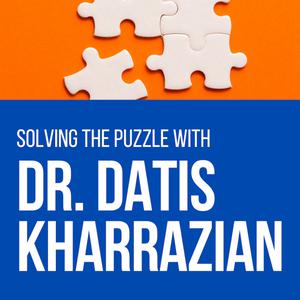
Solving the Puzzle with Dr. Datis Kharrazian
Datis Kharrazian
Evidence-based functional medicine strategies for autoimmune, brain, and chronic health conditions.
- 55 minutes 11 secondsEpisode 47: Chronic Lyme Disease and Mold Illnesses
This episode dives into the complex world of chronic infections, with a particular focus on the far-reaching impacts of Lyme disease and mold-related illnesses. We explore the debilitating symptoms of chronic Lyme disease, from severe fatigue and chronic joint pain to the potential for neurological damage and heart complications. Our discussion highlights the often-misunderstood overlap between ongoing infections and autoimmune responses, revealing how mismanagement of Lyme can lead to persistent health challenges. Mold illness and mycotoxins are also discussed.
Learn more at drknews.com
For patient-oriented courses, visit https://drknews.com/online-courses/
For CE and CME practitioner courses, visit https://kharrazianinstitute.com/
00:00 Ticks must be removed quickly to prevent Lyme.
03:13 Bull's-eye rash indicates Lyme disease; treat immediately.
08:29 Chronic Lyme disease severely impacts daily functioning.
10:31 Lyme disease disrupts metabolism, causing persistent symptoms.
16:05 Infection triggers lasting brain inflammation, causing issues.
17:06 Bacteria location influences Lyme disease symptoms severity.
20:19 Post Lyme syndrome involves neurological autoimmune issues.
25:21 Chronic Lyme impacts include autoimmunity, microbiome issues.
29:01 Mold triggers allergies; toxic mold releases mycotoxins.
33:14 Sensitivity to mold varies; immune reactions differ.
33:54 Common cleaning methods can't completely remove mold.
39:37 Mycotoxins influence intestinal permeability and healing.
42:48 Mycotoxins trigger immune reactions, affecting mold-sensitive individuals.
45:11 Gut dysbiosis is influenced by mycotoxins and immunity.
48:42 Mold sensitization can cause lifelong health issues.
52:02 Mold spores cause symptoms; mycotoxins affect everyone.
Support this show http://supporter.acast.com/solving-the-puzzle-with-dr-datis-kharrazian.
Hosted on Acast. See acast.com/privacy for more information.
4 January 2025, 1:38 am - 1 hour 20 minutesEpisode 46: Navigating Chronic Infections
In this episode, Dr. Kharrazian discusses chronic infections and antibiotic resistance. Topics include hidden pathogen reservoirs, the role of biofilms in persistent illnesses, and why future generations may struggle with basic bacterial treatment. Hear about innovative strategies like probiotics, fecal transplants, and natural disruptors combating resistant strains. Discover how maintaining immune health is key to battling evolving bacteria and learn practical tips to protect yourself.
Learn more at drknews.com
For patient-oriented courses, visit https://drknews.com/online-courses/
For CE and CME practitioner courses, visit https://kharrazianinstitute.com/
00:00 Bacteria classified by Gram stain, cause illness.
07:25 Intestinal permeability leads to severe systemic inflammation.
10:58 Systemic inflammation, endotoxemia: barrier breakdown, severe illness.
20:21 Mycobacterium tuberculosis can reactivate when immunocompromised.
26:06 Biofilms cause 80% of chronic bacterial infections.
28:25 Biofilms influence IBS and ulcerative colitis severity.
33:04 Biofilms cause persistent infections and antibiotic resistance.
38:51 Combine medication and natural medicine for bacterial biofilms.
45:30 Genetic predisposition causes recurrent E. coli infections.
50:48 Poor hygiene impacts multiple body systems significantly.
55:28 Bacteria developed resistance, antibiotics became ineffective.
01:05:44 Probiotics with antibiotics reduce post-surgery complications.
01:11:30 Antibiotics disrupt crucial short chain fatty acid levels.
01:13:13 Use antibiotics, probiotics, and short-chain fatty acids.
01:18:06 Candida aids immunity but causes problems if overpopulated.
Support this show http://supporter.acast.com/solving-the-puzzle-with-dr-datis-kharrazian.
Hosted on Acast. See acast.com/privacy for more information.
12 November 2024, 10:54 pm - 1 hour 7 minutesEpisode 45: Understanding Chronic Viral Infections
In this episode Dr. Kharrazian explores the world of chronic infections, such as Epstein-Barr Virus (EBV), Hepatitis C, Covid, and Human Cytomegalovirus (CMV), and their impact on our immune system. He explores how some pathogens hide within our bodies and reemerge when our immunity is compromised.
He discusses the latest research linking these infections to autoimmune diseases and even cancer, and emphasizes the importance of enhancing our immune defenses rather than just relying on antiviral treatments. He covers a wide range of topics from the basics of virology, the dynamics of long COVID, and the sobering realities of Hepatitis C and Human Papillomavirus (HPV), to the ripple effects of viral infections on our overall health.
Learn more at drknews.com
For patient-oriented courses, visit https://drknews.com/online-courses/
For CE and CME practitioner courses, visit https://kharrazianinstitute.com/
00:00 MHC proteins activate cells to fight infection.
06:16 Long COVID factors: comorbidities, age, severity, inflammation, genetics
13:50 Viral infection can trigger chronic inflammatory conditions.
17:27 Long COVID linked to persistent antinuclear antibodies.
22:53 Autoantibodies may form due to SARS-CoV-2 infection.
27:28 Hepatitis B virus vaccine increases MS risk.
33:58 Alphaviruses include herpes, 53% exhibit antibodies.
39:30 Cytomegalovirus linked to autoimmune diseases, immune manipulation.
45:39 Chronic Epstein Barr causes inflammation, cancer risk.
52:02 Hepatitis C symptoms: diverse and system-wide impacts.
57:33 High treatment costs spark global protests, denials.
01:00:33 PCR measures viral load; biomarkers assess liver damage.
01:06:08 Identify underlying health issues causing recurring infections.
Support this show http://supporter.acast.com/solving-the-puzzle-with-dr-datis-kharrazian.
Hosted on Acast. See acast.com/privacy for more information.
21 October 2024, 11:03 pm - 1 hour 2 minutesEpisode 44: Chronic Infections and the Immune System
This episode explores the world of the immune system's response to pathogens and chronic infections. Dr. Kharrazian discusses the intricate mechanisms pathogens use to evade the immune system, leading to chronic infections and reactivations. He speaks on the impact of immune compromise, genetic factors, and other environmental influences on the severity of infections and autoimmune diseases. He also discusses the pivotal role of protein intake, the formation of antibodies, and the potential link between pathogen-induced inflammation and neurodegenerative diseases.
Learn more at drknews.com
For patient-oriented courses, visit https://drknews.com/online-courses/
For CE and CME practitioner courses, visit https://kharrazianinstitute.com/
00:00 Different pathogens have unique effects on health.
06:30 Local infection can trigger widespread systemic inflammation.
10:32 Chronic infections can reactivate and cause autoimmunity.
18:51 Pathogens can lead to Alzheimer's disease development.
24:38 Inflam aging causes inflammation and body pain.
27:47 Blood contains complement systems, T and B cells, and innate adaptive immunity. Persistent pathogens hide in tissues, evade immune barriers. Chronic infections indicate immune system issues.
33:02 Complement proteins indicate pathogenic load in blood.
40:40 Importance of proteins in immune system activation.
46:00 Genetics impacts response to viral infections.
49:28 Weakened immunity can cause severe cytokine storms.
55:02 Tick and pathogen invasion into tissues explained.
58:53 Micronutrient deficiencies can impact immune compromise significantly.
Support this show http://supporter.acast.com/solving-the-puzzle-with-dr-datis-kharrazian.
Hosted on Acast. See acast.com/privacy for more information.
19 May 2024, 8:07 pm - 24 minutes 9 secondsEpisode 43: Hormonal Imbalance Overview
In this episode, Dr. Datis Kharrazian discusses hormone disorders and their impact on puberty, perimenopause, menopause, and andropause. He discusses the onset of hormone-related issues, such as puberty and perimenopausal transition, and provides evidence-based strategies for addressing menstrual irregularities, hormone imbalances, adrenal function, and more. Dr. Kharrazian also delves into the effects of hormone replacement therapy (HRT), the role of essential fatty acids and seed oils, and the impacts of stress on hormone levels. Additionally, he answers questions on hormone therapy, hormone depletion, and the evaluation of pituitary tumors. Listeners will gain insights into managing hormone-related health conditions and understanding the complexities of the endocrine system.
Learn more at drknews.com
For patient-oriented courses, visit https://drknews.com/online-courses/
For CE and CME practitioner courses, visit https://kharrazianinstitute.com/
00:00 Addressing imbalances, electrolyte depletion, and functional medicine.
04:42 Underweight PCOS patients need specific health care.
07:17 Chart discussed general symptoms, diagnostic steps, treatment.
10:32 Analyze protein and fat intake for health.
15:30 Weight loss can release stored toxins and hormones.
18:29 Steroids and sleep, light, sound sensitivity strategies.
20:14 Perimenopausal insomnia and low testosterone concerns addressed.
23:31 Podcast content not a substitute for medical advice.
Support this show http://supporter.acast.com/solving-the-puzzle-with-dr-datis-kharrazian.
Hosted on Acast. See acast.com/privacy for more information.
30 April 2024, 9:04 pm - 1 hour 23 minutesEpisode 42: Hormone Therapy Strategies
In this episode, Dr. Kharrazian provides insights on growth hormone deficiency, testosterone replacement therapy, strategies for PCOS and infertility, and much more. From discussing the use of growth hormone stimulating peptides to addressing heavy menstrual bleeding and gallbladder issues, this episode offers evidence-based approaches to optimizing endocrine function.
Learn more at drknews.com
For patient-oriented courses, visit https://drknews.com/online-courses/
For CE and CME practitioner courses, visit https://kharrazianinstitute.com/
00:00 Gradual use of HRT therapy based on age.
08:27 Customized hormone therapy starts with low doses.
13:03 Testosterone therapy aids weight loss in men.
20:15 Testosterone replacement therapy may benefit men with diabetes.
23:10 Testosterone replacement therapy in men is safe.
30:20 Men with low testosterone treated with injections.
35:05 Managing testosterone levels in men, potential issues.
38:09 Dietary and lifestyle strategies impact hormones clinically.
48:13 Music therapy, blood sugar, ketogenic diet, sleep issues.
52:33 Nutraceuticals impact insulin resistance; fasting benefits.
56:09 Women in menopause may experience gallbladder issues.
01:03:26 Nutraceutical protocols, insulin signaling, PCOS treatment options.
01:10:20 Evaluate hypoglycemia, insulin resistance, and dietary history.
01:16:18 Decide on hormone therapy based on risks.
01:17:43 Understanding aging and its impact on health.
01:22:32 Podcast content not a substitute for medical advice.
Support this show http://supporter.acast.com/solving-the-puzzle-with-dr-datis-kharrazian.
Hosted on Acast. See acast.com/privacy for more information.
11 March 2024, 3:39 am - 1 hour 29 minutesEpisode 41: Understanding Hormone Disorders
In this episode we dive into the intricate web of hormone imbalances, menstrual disorders, and andropause. We explore the impact of estrogen and progesterone imbalances on the menstrual cycle, as well as the role of prostaglandin imbalances in conditions like dysmenorrhea and PMS. We also uncover the complexities of andropause in males and address the various symptoms and treatment options available.
Learn more at drknews.com
For patient-oriented courses, visit https://drknews.com/online-courses/
For CE and CME practitioner courses, visit https://kharrazianinstitute.com
00:00 Female and male hormone transition patterns summarized.
08:51 BMI impacts endocrine system, genetic factors matter.
12:40 Excessive estrogen production causes gynecomastia in men.
18:51 Prostaglandins influence menstrual pain and discomfort.
26:21 Causes of heavy or light menstrual bleeding.
32:24 High DHE and testosterone levels suggest PCOS.
33:24 PCOS symptoms can normalize with metabolic control.
38:45 PCOS pathophysiology, treatment, and clinical manifestations.
45:19 Adrenal glands help manage perimenopausal symptoms.
49:33 Hormonal changes in perimenopause cause inflammatory response.
59:03 Inflammation and hormones affect women's health.
01:03:18 Menopause can worsen underlying health conditions.
01:06:44 Adulthood: decline in male function and symptoms.
01:13:49 LH levels range indicates potential hormone balance.
01:16:27 Free testosterone is crucial, especially as we age.
01:25:04 Normal range testosterone, relative hypogonad men, DHT.
01:27:26 Male and female hormone disorders patterns explained.
Support this show http://supporter.acast.com/solving-the-puzzle-with-dr-datis-kharrazian.
Hosted on Acast. See acast.com/privacy for more information.
5 March 2024, 2:15 am - 59 minutes 42 secondsEpisode 40: Hormone Balancing through Gut Health
In this episode, Dr. Kharrazian delves into the world of hormone imbalances, microbiome diversity, and the impact of polyphenols and phytoestrogens. He discusses evidence-based strategies for autoimmune disease, brain health issues, and chronic health conditions, and sheds light on the pivotal role of gut health in estrogen metabolism. He also addresses nutraceutical support for insulin resistance and regulating testosterone.
For patient-oriented courses, visit https://drknews.com/online-courses/
For CE and CME practitioner courses, visit https://kharrazianinstitute.com/
00:00 Transitioning off HRT may benefit from modulators.
06:05 Flavonoids affect estrogen receptor, 4 key foods.
10:05 Healthy microbiome diversity enhances effectiveness of soy products.
11:16 Carbs impact conversion of phytoestrogens efficiently.
16:29 Gut health crucial for managing estrogen disorders.
18:57 Diet, lifestyle, supplements affect microbiome diversity.
20:53 Liver pathways detoxifying hormones, potential competition. Nutrients aid hepatic inflammation support.
26:51 Essential fatty acids are critical for health.
30:29 Prostate glands cause pelvic issues, need support.
34:19 Men's testosterone, estrogen testing, insulin resistance, obesity, blood sugar imbalances, hypoglycemia, insulin resistance, dietary guidelines.
36:02 Optimize diet to prevent blood sugar crashes.
39:41 Review found herbal medicines improve PCOS symptoms.
42:41 Aggressive protocol for PCOS using nutraceuticals.
47:19 Nutraceuticals may protect serotonin cells, boost testosterone.
50:44 Botanicals boost testosterone levels but may vary.
53:42 Glial cells switch to pro-inflammatory state. Hormone changes amplify neuroinflammation.
56:35 Peptides stimulate hormones, potential for endocrine treatment.
58:37 Dr. Kharrazian's podcast and blog information.
Support this show http://supporter.acast.com/solving-the-puzzle-with-dr-datis-kharrazian.
Hosted on Acast. See acast.com/privacy for more information.
19 February 2024, 3:04 am - 1 hour 29 minutesEpisode 39: Hormone Imbalance & Obesity
In this episode, Dr. Kharrazian provides insight into the impact of obesity on male and female hormone imbalances, infertility, and the body's endocrine system. From the role of adipose tissue to the effects of hormone replacement therapy, this episode explores the complexities of hormone balance and offers evidence-based strategies for managing these crucial aspects of health. Dr. Kharrazian discusses blood glucose management, gut health, and the impact of hormone deficiencies on mitochondrial function and other aspects of physiology.
For patient-oriented courses, visit https://drknews.com/online-courses/
For CE and CME practitioner courses, visit https://kharrazianinstitute.com/
Learn more at drknews.com
Timestamps:
00:00 Hormones impact mitochondria, affecting cellular function.
09:31 Mitochondrial health affects recovery and signaling pathways.
12:00 Hormone replacement may fix mitochondrial dysfunction. Stress affects mitochondria.
16:22 Certain genetic factors can increase health risks.
25:26 Aromatization causes body fat increase, vicious cycle.
31:00 Estrogen drop in women leads to fat tissue.
32:52 Steroid use can disrupt endocrine system balance.
42:35 Healthy adrenal function is crucial in perimenopause.
48:03 Adrenal gland imbalances and stress responses summarized.
53:04 Insulin resistance causes blood sugar roller coaster.
57:10 Symptom patterns indicating early stages of insulin resistance.
01:02:30 Gut bacteria convert chemicals and hormones.
01:08:19 Hormone deficiency causes leaky gut, affecting health.
01:12:26 Inflammatory diets cause low testosterone levels.
01:20:18 Hormones critical for health and disease prevention.
01:23:28 Hormone imbalances affect brain recovery and health.
01:28:20 For more info visit drknews.com/podcast.
Support this show http://supporter.acast.com/solving-the-puzzle-with-dr-datis-kharrazian.
Hosted on Acast. See acast.com/privacy for more information.
31 January 2024, 7:58 pm - 1 hour 27 minutesEpisode 38: Hormone Imbalance and Environmental Toxins
In today's episode, we dive into the impact of hormone imbalance on overall health. From the critical role of adequate sleep in hormone regulation to the potential effects of environmental chemicals on endocrine function, Dr. Kharrazian shares valuable insights and evidence-based strategies for managing hormone imbalances.
For patient-oriented courses, visit https://drknews.com/online-courses/
For CE and CME practitioner courses, visit https://kharrazianinstitute.com/
Learn more at drknews.com
00:00 Toxic chemicals in everyday products, impacts on health.
09:13 Endocrine disrupting chemicals impact female reproductive function.
12:57 Endocrine disrupting chemicals impact PCOS in females.
18:47 Endocrine disrupting chemicals impact serious health conditions.
22:17 Inflammation impacts male testosterone and female infertility.
32:18 Aquifers impact water supply with hormones, pharmaceuticals.
34:54 Use multiple layers of water filtering systems.
43:10 Air pollution impacts cortisol and microbiome health.
48:26 Intense exercise is important for hormonal balance.
52:57 Low or high body mass affects hormones.
58:06 Injections are crucial for male obesity issues.
01:03:36 Muscle mass affects health risks in obesity.
01:08:32 Suppressed FSH, low TSH, hormone-related issues.
01:12:27 Hormones, sleep, and strategies for better rest.
01:19:50 Minimum needed protein is 1g/lb body weight.
01:24:18 Blood sugar: Hypoglycemia vs insulin resistance management.
Support this show http://supporter.acast.com/solving-the-puzzle-with-dr-datis-kharrazian.
Hosted on Acast. See acast.com/privacy for more information.
17 January 2024, 9:46 pm - 1 hour 23 minutesEpisode 37: Personalized Strategies for Balancing Hormones
In this episode, we take a deep dive into the intricate world of hormone imbalances and hormone replacement therapy. Dr. Kharrazian discusses the latest research findings, revealing a clear linear dose-response relationship between oral contraceptive use and the risk of hypertension, as well as the links between hormone replacement therapy and various health concerns. We explore the complexities of hormone disorders and the need for a personalized approach to treatment, discussing the impact of hormones on clinical function, the liver, and the gut microbiome. Join us as we uncover the vital connection between hormones and overall health, as well as the challenges individuals face in receiving appropriate evaluation and treatment for hormone-related issues in the current healthcare system.
Learn more at drknews.com
00:00 Hormone disorders treated with diverse approaches.
08:13 Hormone replacement therapies and over-the-counter options.
14:10 Different types of hormonal contraceptives can cause weight gain and mood disorders.
18:50 Glial cells produce main hormone for synaptic activity.
25:45 Hormone replacement therapy not recommended for everyone.
30:43 Testosterone therapy shows health benefits with low risk.
37:49 Variety of lifestyle strategies for hormone balance.
39:54 Viral infection may require immediate symptom management.
48:43 Stimulating dysfunctional gland, hormones, pituitary issues, hormones.
53:18 Protein pathways impact hormone levels causing symptoms.
58:19 Androgel may not effectively metabolize into hormones.
01:02:16 Microbiome dysbiosis consequences, particularly linked to hormones.
01:08:23 Estradiol strongest, estrone not as strong.
01:11:19 Urinary labs may not accurately test hormones.
01:16:20 Maintain resiliency for hormone levels, health longevity.
Support this show http://supporter.acast.com/solving-the-puzzle-with-dr-datis-kharrazian.
Hosted on Acast. See acast.com/privacy for more information.
2 January 2024, 11:11 pm - More Episodes? Get the App
Your feedback is valuable to us. Should you encounter any bugs, glitches, lack of functionality or other problems, please email us on [email protected] or join Moon.FM Telegram Group where you can talk directly to the dev team who are happy to answer any queries.
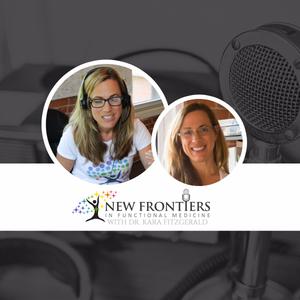 New Frontiers in Functional Medicine
New Frontiers in Functional Medicine
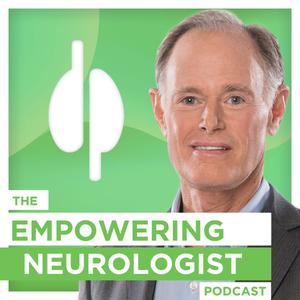 The Empowering Neurologist Podcast
The Empowering Neurologist Podcast
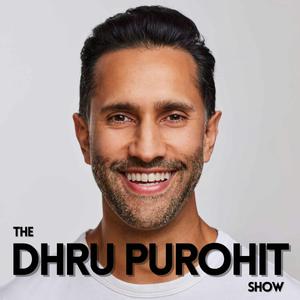 Dhru Purohit Show
Dhru Purohit Show
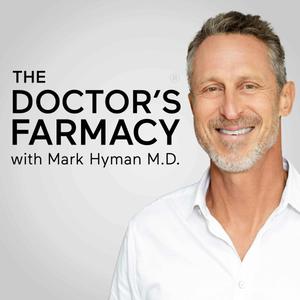 The Doctor's Farmacy with Mark Hyman, M.D.
The Doctor's Farmacy with Mark Hyman, M.D.
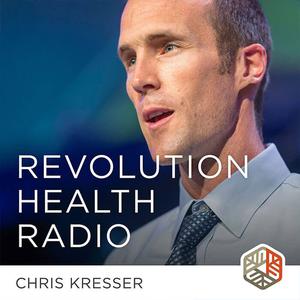 Revolution Health Radio
Revolution Health Radio
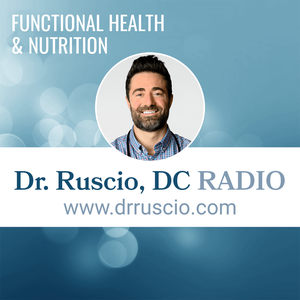 Dr. Ruscio Radio, DC: Health, Nutrition and Functional Healthcare
Dr. Ruscio Radio, DC: Health, Nutrition and Functional Healthcare